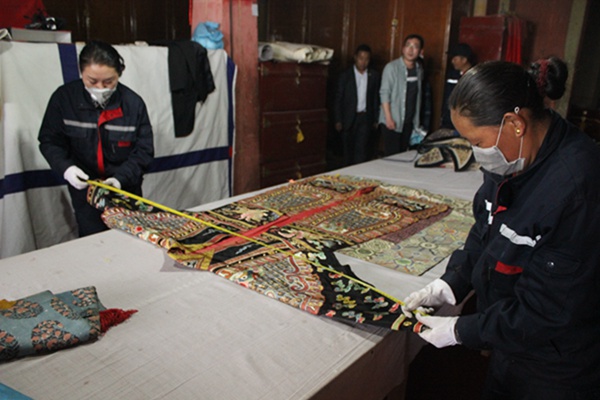 |
|
Staff members from the Potala Palace in Lhasa, capital of the Tibet autonomous region, sort out cultural relics. [Photo/China Daily] |
Statistics from the Ministry of Finance show that 64 million yuan ($9.3 million) was allocated by the central government for the database and the training of investigators. And 1.18 billion yuan more was spent by local governments to support the work.
"Though some institutions had their own register before, a uniformed platform with standard criteria was lacking," Guan says.
"Now, this platform will also be open for privately owned cultural relics."
According to WangLi, deputy director of the office in charge of the survey, the authorities were also inspired by similar exercises conducted overseas.
For instance, she cites the French experience, Italy's register system and Japan's laws.
"We'd like to share our experiences, criteria and results," she says.
"International cooperation on protection of cultural relics will also be enhanced."
Duan Yong, an official in charge of a museum under the State Administration of Cultural Heritage, also says that such a survey is helpful for the repatriation of lost cultural relics.
"A major problem when it comes to getting back artifacts from overseas is the lack of evidence," he says.
"But if the items are in the database, it is easier to trace them if they get stolen."